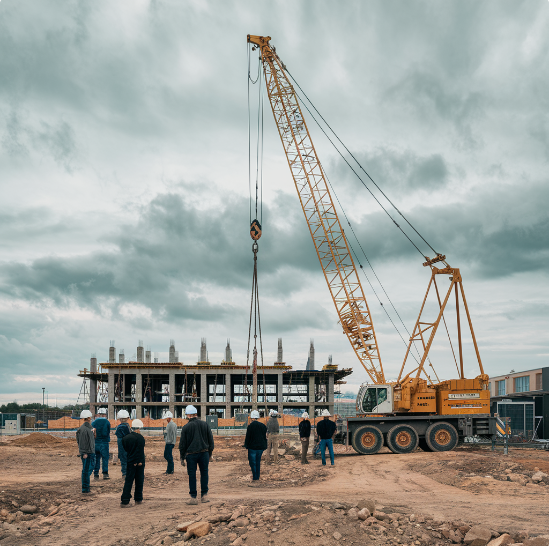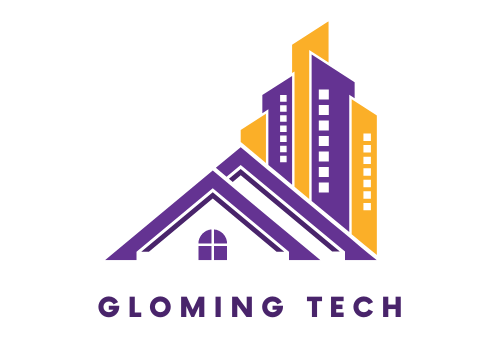Blockchain technology however is likely to drive a huge change and fresh growth in the construction industry. It is more commonly known as the technology on which bitcoin and other cryptocurrencies are based but its uses extend beyond the field of economics. The technology can complement construction by constructively eliminating effects of project overruns, delays, lack of transparency, poor contract management which have plagued the construction industry for years.

Understanding Blockchain: A Quick Primer
Now before discussing such expansive applications of blockchain, let me explain simply what it is. Essentially, blockchain is a form of database that is shared within a computer network where all entries can be made but no previous entry can be removed. This provides an extremely secure, verifiable, and trustworthy information system. The chain stores records of several transactions, each section known as a block and upon completion of a block, it is joined in a row by means of the chain in a time-specific order.
Key Applications of Blockchain in Construction
1. Smart Contracts for Transparent Agreements
Smart contracts are demonstrated to be one of the most promising areas of blockchain technology in construction. They are complete contracts in themselves, with self-enabling provisions, the whole agreement encoded in a computer. They govern themselves by executing the terms and conditions that have already been described when preset conditions are satisfied.
Benefits:
- Fewer Disputes: Smart contracts extend the range of conflicts likely to occur by making anthropogenic conditions such as payment schedules, completion dates, and performance compliance irrelevant in the execution of a contract.
- Clarity: It means that everyone is looking at the very same facts concerning the agreement increasing clarity in the relationships.
- Saves Time: By delegating the contract execution work to software, it eliminates unnecessary supervisory activities and therefore completes contracts much faster than normal.
2. Supply Chain Management and Material Tracking

Construction projects comprise several suppliers and subcontractors, hence supply chain management is very complex. Blockchain can serve as a transparent and secure database regarding materials’ provenance, locations, alterations, and characteristics.
Benefits:
- Increased Accountability: With blockchain, every single material used will be able to be followed to the source especially for checking whether the correct and compliant materials have been utilized within the findings.
- Lower Risk of Fabrication: The incorruptible records on blockchain, whether public or private ensure that fake materials do not find their way into the chain.
- Improved Organization: Materials can be tracked as they reach various stages of construction which provides for an effective strategy, and eliminates waiting times caused by the availability of supplies.
3. Secure and Transparent Payment Processes
Getting paid on time is a chronic problem in the construction industry which translates to project delays and increased expenses. This issue could be alleviated by having smart contracts to handle payments through blockchain technology.
Benefits:
- Timely Payments: Payments can be made promptly to the contractors and suppliers once the specified target is reached.
- Lower Expenses: With blockchain technology, there are no middlemen involved, thus fewer costs and fewer fees associated with transactions.
- Fewer Payment Issues: Another advantage offered by blockchain is minimizing disputes over payments.
4. Project Management and Collaboration
Construction involves several Parties namely architects, Engineers, Contractors, and clients. Information on the project has many sources and so the use of blockchain enhances the information to reduce communication difficulties.
Benefits:
- All the Information about the Project: all the project’s plans, documents, schedules, and anything else related to the project can be placed in a blockchain and made available to those concerned
- No Time Wastage: When an update is applied to a project, it is done and linked to every party that had access to the update, and this cuts down on errors and inefficient work recycles.
- Documentation In-British Columbia: Blockchain has a record of everything that has been most importantly done and hence this makes auditing and verification of the project easy.
5. Asset Management and Maintenance
Using blockchain to preserve construction assets over an extended period can bear fruit. After the completion of a building or other infrastructure, it will be easier to manage maintenance, repairs, and improvements of the asset using blockchain technology.
Benefits:
- Keeping Logging of Activities: Each activity relating to maintenance and repair can be systematically logged onto the blockchain so the entire history of the asset is provided.
- Predictive Maintenance: Due to the embedding of IoT with other systems like blockchain, predictive maintenance can be adopted hence minimizing downtimes at the same time increasing the longevity of the asset.
- Enhanced Resale Value: The resale profitability of an asset will increase due to an accompanying maintenance history which is well documented upon request.
Benefits of Blockchain in Construction

1. Increased Transparency
Owing to the transparent nature of the blockchain technology, all participants have the same information thereby minimising the opportunity of conflicts and misconceptions among the parties involved.
2. Enhanced Security
However, since there is no central authority to gain control over the distributed ledger, the information is less vulnerable to unauthorized exposure and cyber attack, restricting disclosure of sensitive project data.
3. Improved Efficiency
Blockchain helps in improving project execution as well as decreasing administrative activities by eliminating the need of monitoring non value added tasks such as documentation for payment processing, assignment of contracts and payment as well as tracking of materials.
4. Cost Savings
Cost savings whether direct or indirect are generated by removing middlemen, as well as lower levels of conflict and improvements in effectiveness at each stage of the project.
5. Better Compliance
Every party involved with a transaction is therefore compelled to meet their legal regulatory as well as contractual expectations because of the open and permanent record of every transaction that the blockchain guarantees.
Challenges in Implementing Blockchain in Construction
1. Technical Complexity
Putting into practice blockchain calls for skills and infrastructure that are most probably not existent in the construction branch.
2. Lack of Industry Awareness
Despite the overwhelming possibilities of blockchain, many construction nines is not quite aware of any possible benefits of adopting this into their projects, and so the rate of such adoption still remains very low.
3. Integration with Existing Systems
Some study has shown that combining blockchain with current construction project management systems is not easy and may take tons of money and time.
4. Regulatory Uncertainty
The policies surrounding the use of blockchain are yet to be fully implemented which can lead to the arising of such legal issues as smart contracts and construction with blockchain.
5. Initial Costs
Easily the most detrimental aspect of the technology is that although blockchain will eventually, after a few years, yield tremendous benefits, the cost of acquiring all these technologies and training staff members will be rather expensive.
The Future of Blockchain in Construction
The construction industry is yet to fully embrace the potential offered by blockchain technologies, yet the promise is indeed great. Such trends are likely to shift after a while as more organizations appreciate the importance of blockchain technology in construction.
1. Integration with IoT and AI
The integration of blockchain with IoT and A.I indeed has the potential to change the game when it comes to construction management. The consumption levels of materials and the productivity of equipment can be tracked using IoT devices which in turn will optimize the planning and completion of the project using A.I. Then this information can be collected and disseminated to the project team using blockchain technology.
2. Wider Adoption of Smart Contracts
As legal forces catch up with the technology and issues surrounding smart contracts are sufficiently addressed we can expect this technology to be more widely acceptable in the sphere of construction. So we’ll see further simplification and rationalization of contract administration processes with more pervading automated and transparent management of contracts.
3. Blockchain-Based Project Platforms
A blockchain based project management software is envisioned in the not so distant future that encompasses all the phases of construction from the design phase, procurement, construction phase as well as the management of the asset after its completion.
4. Enhanced Sustainability
Such information enables informed choices about the materials to use when building in regards to their sustainability. Blockchain can be instrumental in promoting environmentally friendly construction.

Conclusion
Blockchain technology can revolutionize the construction sector as it seeks to improve the level of transparency, security and overall efficiency of the processes involved during different phases of a project. It is an irrefutable fact however that given some of the challenges that exist as pitched by critics, there is more good than bad emanating from the technological trend. This continues to change and those who adopt blockchain technologies at this stage of the construction evolution will be at the forefront of this digital construction revolution.
FAQs: Blockchain Construction Industry
1. What is blockchain technology in construction?
A blockchain is a form of a cutting-edge register operated independently and all transactions done are recorded with complete certainty. . In construction, it can be used in smart contracts, supply chain and payment process management and so forth.
2. How do smart contracts benefit construction projects?
Smart contracts create automatic implementation of contracts, as well as help in understanding and complying with obligations. This reduces the chances of a conflict, increases transparency and speeds up payments.
3. What are the challenges of using blockchain in construction?
But certain constraints still persist in the form of technical complexities, industry unawareness, compatibility with existing systems, regulatory risk and cost of initial implementation.
4. How can blockchain improve supply chain management in construction?
Blockchain offers the possibility to keep information in such a way as to prevent its alteration and eventually to have complete knowledge of the origins, the movement, and the specifications of the materials – thereby controlling fraud and enhancing logistical management.
5. What is the future of blockchain in the construction industry?
In particular it will mean further everyday use of smart contracts – interaction with the IoT and AI, development of project platforms based on blockchain technology and development of sustainable development management systems.
